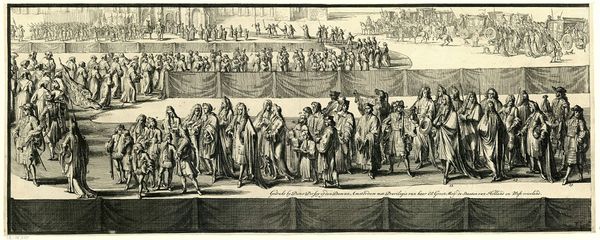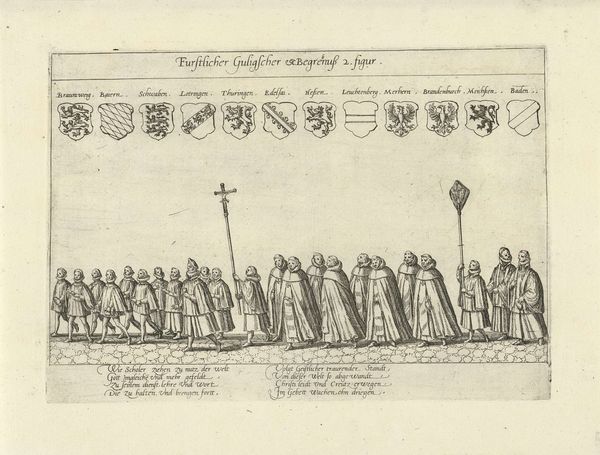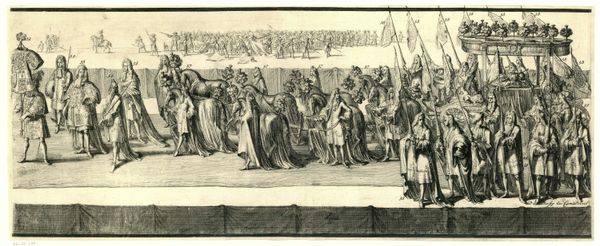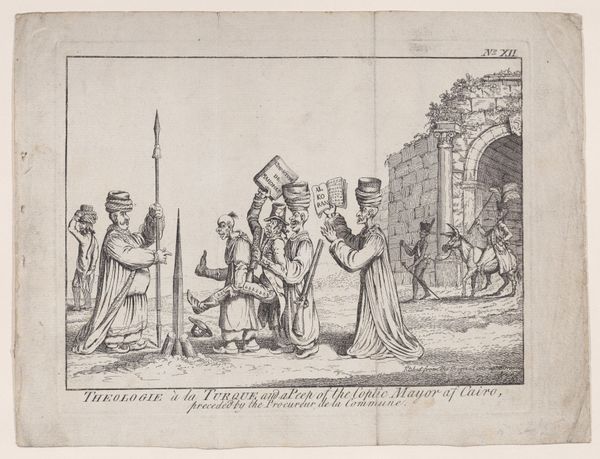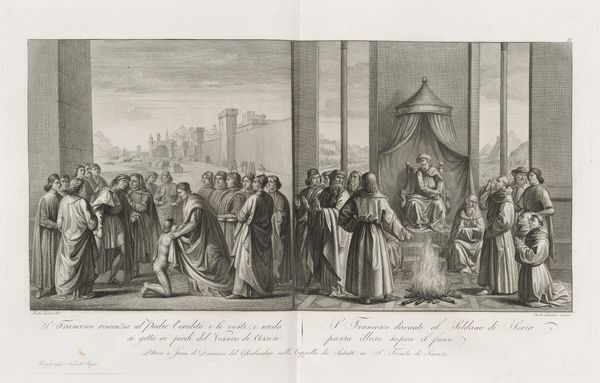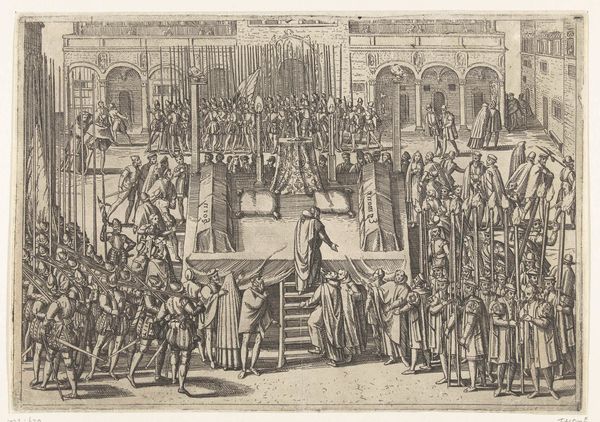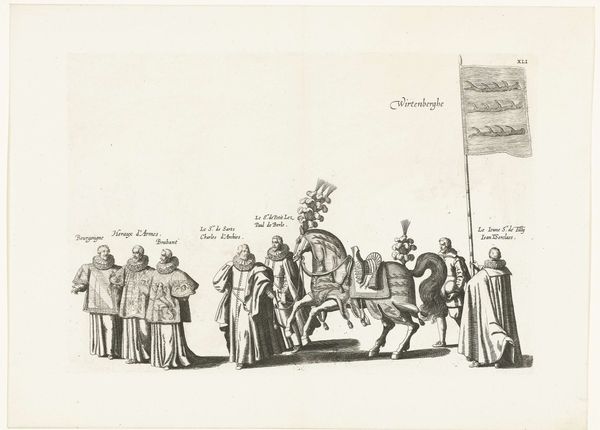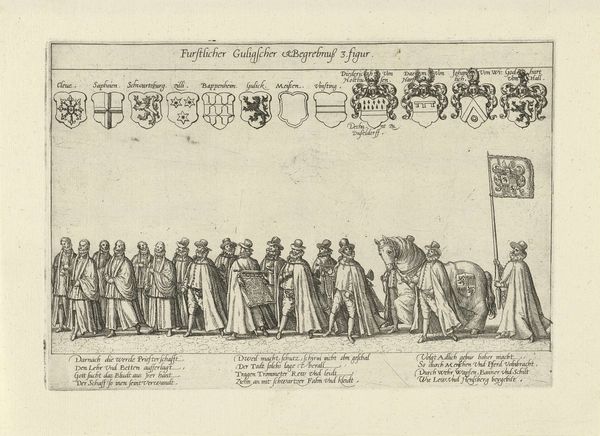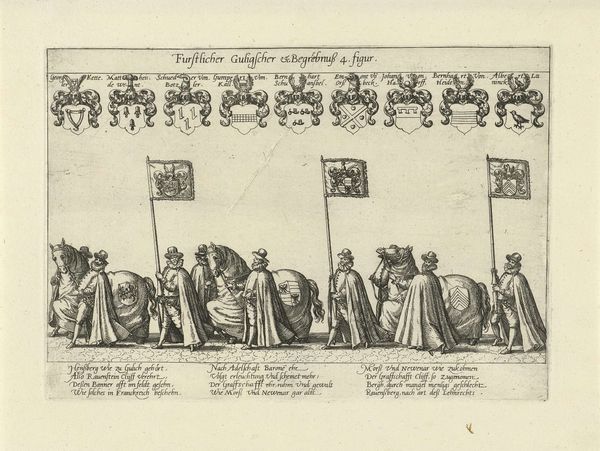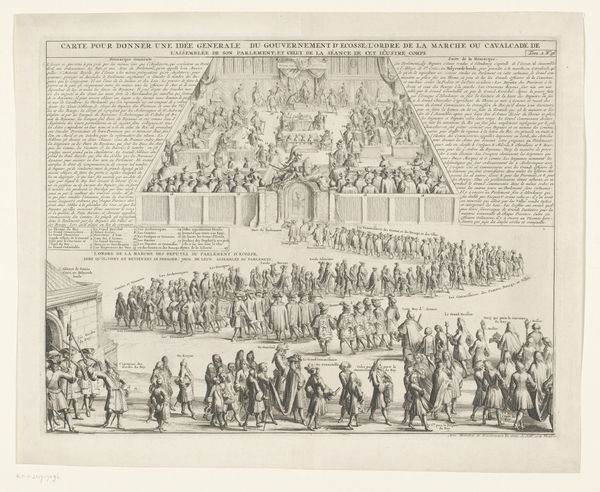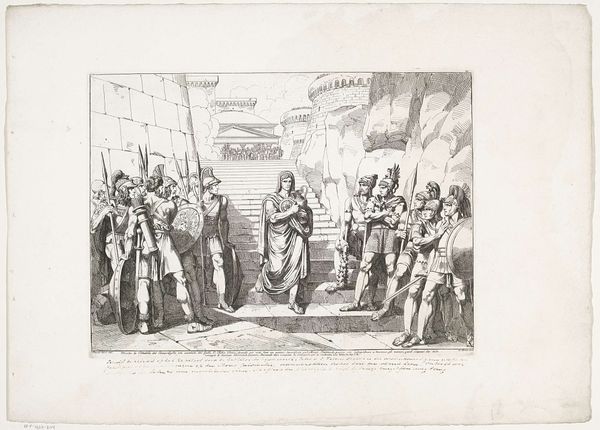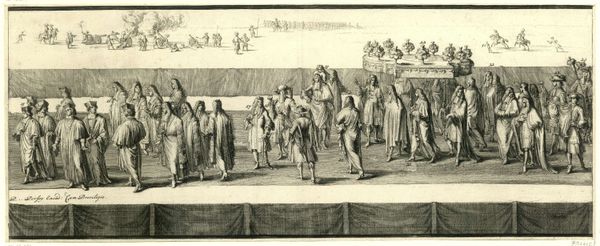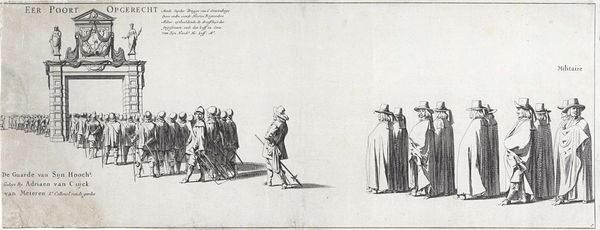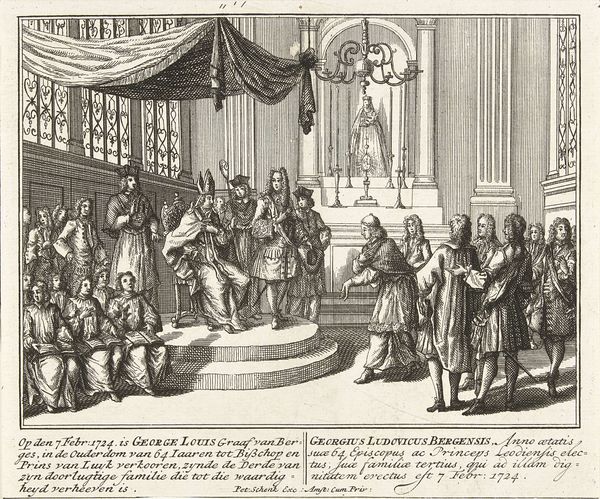
Doodskist in de begrafenisstoet van aartshertog Albrecht (plaat LV), 1622 1623
0:00
0:00
cornelisgallei
Rijksmuseum
print, engraving
#
baroque
# print
#
old engraving style
#
group-portraits
#
history-painting
#
engraving
Dimensions: height 264 mm, width 383 mm
Copyright: Rijks Museum: Open Domain
Editor: So, here we have Cornelis Galle I's "Doodskist in de begrafenisstoet van aartshertog Albrecht," or "Coffin in the funeral procession of Archduke Albrecht," an engraving from 1623. It depicts, predictably, a funeral. What do you make of this as a piece of cultural memory? Curator: Funerals, of course, are powerful rituals marking transitions – not just for the deceased but for the living, as well. This print isn't merely a record of an event; it's a carefully constructed statement. Think of the visual language. What symbols resonate with you most strongly? Editor: The canopy over the coffin stands out, and all of those figures. They seem almost interchangeable, yet they're painstakingly detailed. The spears maybe? Are they emphasizing the Archduke’s military power even in death? Curator: Precisely. Spears, yes, speak to military might, but also to authority and protection. Note how the coffin itself is decorated, though it's hard to make out clearly. Aren't you struck by how the procession is framed? The almost overwhelming feeling of order imposed on grief? Editor: It’s incredibly rigid. The men seem stoic. So, the symbols, the composition—it's all intended to project a very specific image of power and stability even during a time of loss. I hadn’t considered the degree to which it stages grief as a means to make a political statement. Curator: Indeed, memory, particularly cultural memory, is not passive. This image asks us to consider not just *what* happened, but *how* it was presented and *why*. Death becomes a tableau for solidifying power. Editor: That’s really insightful. I will never look at historical prints the same way again!
Comments
No comments
Be the first to comment and join the conversation on the ultimate creative platform.
